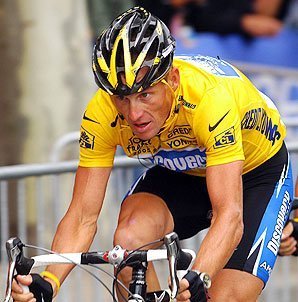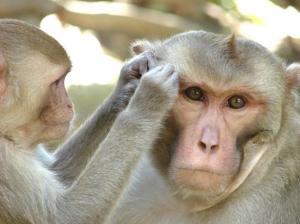 Later today, I’ll be taking part in a panel discussion on the topic “Homosexuality is more African than Christianity”, as part of UCT’s Pink Week. Seeing as no less an authority than Errol Naidoo has previously described me as a “homosexual activist“, I guess I’m qualified, and the topic should make for a fun discussion.
Later today, I’ll be taking part in a panel discussion on the topic “Homosexuality is more African than Christianity”, as part of UCT’s Pink Week. Seeing as no less an authority than Errol Naidoo has previously described me as a “homosexual activist“, I guess I’m qualified, and the topic should make for a fun discussion.
Even though I tend to never stick to the remarks I’ve prepared, here are some thoughts on the topic for those of you who weren’t (or aren’t, depending on when I publish this) able to attend.
First, of course the topic is meant to be provocative – in fact, it seems pretty clear that this is its primary purpose, seeing as it’s incoherent on a number of levels. Off top of head, you’d ask what “African” means; how it’s measured (how can one thing be more “African” than another?); whether Christianity or homosexuality are plausibly or potentially “African” at all (rather than human, animal, natural, unnatural, good, bad, etc.) – i.e. is that the correct category for the thing you’re describing.
And of course, you can ask whether any of this matters.
The sorts of things I intend to address are:
- Homosexuality predates any established, mainstream religion. It must do so, because it predates language, in that we find homosexuality all around in the animal kingdom, never mind only in humans. Cats, dogs, rats, foxes, bears, dragonflies… just some of the species in which homosexuality has been observed.
- We also know that Christianity only gets to Africa (Egypt, in particular) in the middle of the 1st Century. So, unless we want to claim that for all the centuries before that, Africans weren’t really African, you’re left with a bit of a dilemma if you want to deny the question as posed. Of course – in terms of when they started, at least – homosexuality has to be more “African” than Christianity.
- What does it mean to be “African”? As I argue in the first link in the opening paragraph, I’m not at all keen on identity politics of this sort. If we want to define “more African” as “observed first”, then (as described above), homosexuality beats Jesus. But if we want to define African as having a certain character or attributes, then it’s of course possible (very hypothetically) for someone to make a case that homosexuality is some sort of aberration, and Christianity the more “natural”, or “normal” way of being.
- But then, you simply sound like someone who wants to use religion as a vehicle to prescribe sexually permissible and impermissible behaviour – and in this case, to justify your homophobia. The burden of proof would then be on you to demonstrate why those religions, and those rules, are the ones we need to subscribe to.
- In doing so, you’re of course forbidden from arguing that your religion shows that homosexuality is “immoral” because God says so. Because that’s circular, in that it’s exactly the identity and authority of your alleged God that is in dispute here, and it’s your God that tells you it’s immoral.
- Lastly, some might want to say that there’s something normal or “natural” about seeking god(s), and that homosexuality is “unnatural” in some sense that makes Christianity more fitting for Africans. But what does is mean for something to be unnatural in any event? Do you mean:
- statistically rare? If so, then left-handedness is inappropriate/immoral also.
- not conducive to procreation? Then, no sex with contraceptives, after menopause, etc.
- not using your body as God intended (i.e. “the Lego doesn’t fit” argument) – well then, wearing spectacles is inappropriate, seeing as your nose wasn’t designed to hold up spectacles.
And of course, as highlighted above, homosexuality exists in nature long before any religion – never mind Christianity – does.
As a last consideration – whether something is African or not, and whether something is natural or not (regardless of how we define those terms) – so what? What relevance does that have to right/wrong? That case still has to be made, even if we are able to make a case that something is “unnatural” or “un-African” in some coherent sense.
To raise a related, but a different issue: There is one thing that’s quite likely to be both more African, and more Christian, than homosexuality is – at least in terms of prevalence. That thing, unfortunately, is homophobia.
In summary, stop telling people how they need to live, and let them live as they like, so long as they aren’t harming each other. The known harmful thing, in the meanwhile, is the judgement and prejudice of homophobes.




